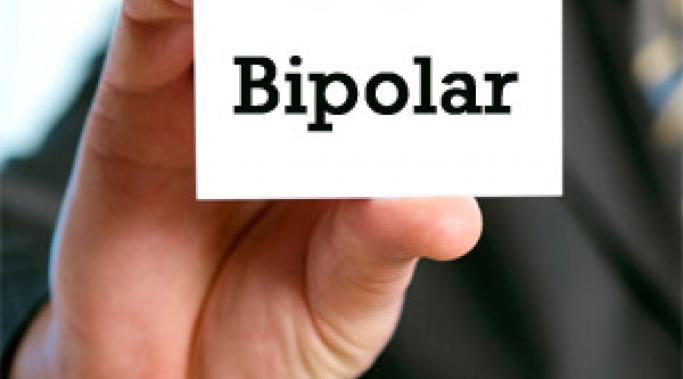As I’ve mentioned, recently I’ve started volunteering for a local bipolar organization and what I do is give presentations to others. One part of the presentation is my “bipolar story.” It’s the story of my life before diagnosis, the process of treatment and whatnot. It’s long and, well, not that happy.
But one of the things that stands out is that treatments have turned me around, but then they stopped working and new treatments had to be found. And these new treatments were extremely hard to find. In fact, successful treatments have been found through guessing as often as through any type of clinical judgement.
And there’s a reason for this: bipolar disorder and bipolar disorder treatment are moving targets and our responses have to move with them.
Understanding Mental Illness
Ah, the human brain. It’s a wondrous thing. It calculates, it categorizes, it makes connections and it remembers the square root of 144. I’m constantly awed by its power.
But one of the annoying things that can happen to a brain is that somehow, a song gets stuck in it. Somehow, even though its great power and ability, the catchy hook of the latest pop song gets stuck inside some errant neurons and plays over and over.
And this causes a lot more trouble in my bipolar brain than it does for others.
It should surprise no one that I consider mental healthcare an essential service for people. Now, I live in Canada and this means that I can get the care I need without paying for it, but people in the United States are not so lucky. I have to constantly hear about people who can’t get the care they need because of the limits placed on them by insurance companies.
And this is wrong.
Mental healthcare is as essential as any other kind of healthcare. If you have a broken leg, you expect treatment, and if you have a broken brain, you should expect the same thing.
One of the problems with psychotherapy (and, keep in mind, I like psychotherapy) is that psychotherapists try to look for a cause for every emotion. And this seems reasonable. Or at least it does, to a person without a mental illness.
One of the things that is so debilitating about a chronic, long-term mental illness is that it is so relentless. Day in and day out you face the challenges it brings. On your birthday, it’s there. On Christmas, it’s there. On Arbor Day, it’s there. And no matter how you’re feeling and what’s happening in your life, you have to deal with it. Mental illness isn’t the kind of thing that you can push “pause” on. Mental illness doesn’t wait for later. Mental illness is like a 2-year-old. It wants you now, now, now, now and if it can’t have you, then heck hath no fury like a two-year-old ignored.
But I swear, I could be a better crazy person if I could just get a break once in a while. If I could just get all the nuttiness in my head to shut up for a while I swear I could get on with things like work, and taxes and cleaning and the gym. But the nuttiness in my head will not be quelled and this, I think, is one of the hardest things about mental illness.
We all have good things happen in our lives. It might be marriage, a child, a new job or a stunning new hair color. All these things are good, but all these things are also changes. Good changes, but changes nonetheless. And as someone once said, “change is bad.”
I’ve been writing about bipolar disorder and mental illness for nine years. Nine long years of pain and depression and episodes and hyperreality and desperation and description and explanation and exploration. And people still don’t get it. Even if you look at the past year – over 200 articles, there still seems to be nothing but a chasm between the mentally ill and so many of the mentally well.
And I think this is because language is insufficient to express emotional pain and turmoil. We have good words for describing physical pain: radiating, hot, throbbing, sharp, achy and so on. But when it comes to emotional pain we’re “sad.” The same word applies when you drop your ice cream cone on the ground as when you’re so depressed that you can’t get out of bed. It’s not surprising that people don’t get what we’re talking about.
There are a lot of things I don’t believe in. Religion. Ghosts. Tarot card readers. Tea leaves. Homeopathy. Taylor Swift. And so on. We all can make a list like this. We all have things we believe in and things that we don’t.
But one thing we all have in common is that we’re all looking for ways to get through the pain of mental illness, bipolar disorder. And some people find religion, ghosts, tarot card readers, tea leaves, homeopathy or Taylor Swift comforting. And I think it’s important we don’t disavow or judge something just because we don’t believe in it.
There is this whole notion that simply by saying the words, “I’m bipolar” you’re somehow overidentifying with bipolar disorder. In other words, you’re allowing the disease to define who you are. Well, naturally, I find this to be ludicrous and I don’t need to play word games in order to individuate myself as a person.
Nevertheless, I admit that bipolar is a huge part of my life and I make no apologies for that. If you were sick every moment of your life it would have quite an impact on you too.
There is a type of denial of mental illness that goes beyond mere psychological denial – this is called anosognosia and it is the clinical term for the lack of insight required to understand you have a mental illness. Anosognosia is a neurological disorder thought to be caused by abnormalities in the frontal lobes (Impaired Awareness of Illness (Anosognosia): A Major Problem for Individuals with Bipolar Disorder).
![MP900382658[1]](/sites/default/files/styles/blog_listing/public/uploads/2012/11/MP9003826581-731x1024.jpg?itok=Up3q4iwe)


![MP900385750[1]](/sites/default/files/styles/blog_listing/public/uploads/2012/11/MP9003857501-731x1024.jpg?itok=CsQXXT54)





